Search
Did you mean: Roman Architecture?
Search Results
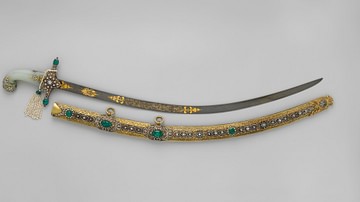
Image
Ottoman Sword of State
An Ottoman sword of state, used during inauguration ceremonies for sultans. The sword was refitted in 1876 CE for the planned inauguration of the Ottoman sultan Murad V (r. 1876 CE). The sword is comprised of a 17th Century CE Iranian steel...

Image
Ottoman Infantry Coat of Arms (1882-1922 CE)
A typical military sign from the Ottoman Empire known as "arma" (this Homeric Greek expression itself reflects a symbol adopted under influence from abroad). Used in the Turkish army (infantry) and displayed on the reverse side of the battalion...
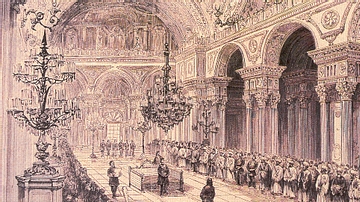
Image
Opening Ceremony of the First Ottoman Parliament
Opening ceremony of the First Ottoman Parliament at the Dolmabahçe Palace in 1876 CE. The First Constitutional Era lasted for only two years until 1878 CE. The Ottoman Constitution and Parliament were restored 30 years later with the Young...

Definition
Despotate of the Morea
The Despotate of the Morea was a semi-autonomous appanage of the later Byzantine Empire. The Byzantines retook part of the Peloponnese in Southern Greece in 1262 CE, but the Morea was only officially governed by semi-autonomous despots of...

Image
The Greatest Extent of the Ottoman Empire in Europe (1683 CE)
A depiction of the Ottoman Empire and its dependencies in 1683 CE, with an indication of territory held prior to that date.
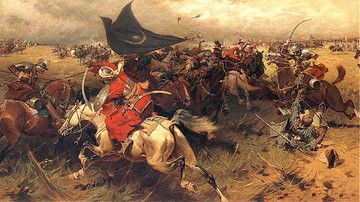
Image
Ottoman Sipahi Cavalry
16-17 century CE Ottoman sipahis in battle at Vienna, holding the crescent banner (by Józef Brandt)
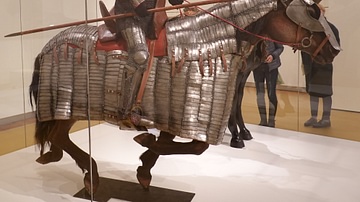
Image
Mamluk or Ottoman Cavalry
Armour for a cavalryman and his horse, produced c. 1500 CE. From the Mamluk Sultanate or Ottoman Empire. Collection of the Hermitage Amsterdam.

Image
Ottoman or Mamluk Horseman
This is an example of the armor of Ottoman or Mamluk horseman and his horse armor c. 1550 CE. Collection of the Army Museum, Paris.

Definition
Leon Battista Alberti
Leon Battista Alberti (1404-1472 CE) was an Italian scholar, architect, mathematician, and advocate of Renaissance humanism. Alberti famously wrote the treatise On Architecture where he outlines the key elements of classical architecture...
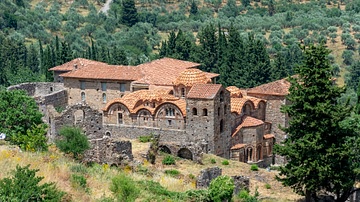
Definition
Mystras
The city of Mystras (or Mistras) in southern Greece was the provincial capital of the Byzantine Despotate of the Morea from the 13th through the 15th centuries CE. It was founded in 1249 CE by William II of Villehardouin, and it served as...